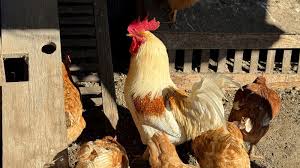The avian flu, also known as bird flu, has been a topic of significant concern globally. With recent outbreaks reported in various parts of the world, including India, the question arises: Does India need to be concerned about the avian flu outbreak? In this article, we delve into the current situation, the implications for public health, and the measures being taken to mitigate the spread of this virus.
Understanding Avian Flu
What is Avian Flu?
Avian flu is an infectious disease caused by influenza viruses that primarily affect birds. While most strains of the virus are not harmful to humans, some can cross the species barrier and cause severe respiratory illness in humans.
Historical Context
The avian flu has a history of causing significant outbreaks among poultry and wild birds. The H5N1 strain, in particular, has been notorious for its high mortality rate in birds and the occasional human infections it causes.
Current Avian Flu Situation in India
Recent Outbreaks
India has witnessed sporadic outbreaks of avian flu in recent months. These outbreaks have led to the culling of thousands of birds to prevent the spread of the virus.
Affected Areas
Several states, including Kerala, Haryana, and Maharashtra, have reported cases of avian flu. The outbreaks have predominantly affected poultry farms, leading to significant economic losses for farmers.
Government Response
The Indian government has implemented strict measures to control the spread of avian flu. These measures include culling infected birds, disinfecting affected areas, and imposing movement restrictions on poultry products.
Public Health Concerns
Transmission to Humans
While avian flu primarily affects birds, certain strains can infect humans. Transmission usually occurs through direct contact with infected birds or contaminated environments.
Symptoms in Humans
In humans, avian flu can cause symptoms ranging from mild respiratory illness to severe pneumonia and even death. Early detection and treatment are crucial for improving outcomes.
Potential for Pandemic
The possibility of an avian flu strain mutating and becoming easily transmissible between humans is a significant concern. Such a scenario could potentially lead to a pandemic, highlighting the importance of vigilance and preparedness.
Economic Impact
Poultry Industry
The poultry industry in India has been severely impacted by the avian flu outbreaks. The culling of infected birds and the resulting trade restrictions have led to substantial economic losses for farmers and related industries.
Consumer Confidence
Outbreaks of avian flu can lead to a decline in consumer confidence in poultry products. This can further exacerbate the economic impact on the poultry industry, affecting livelihoods and market dynamics.
Measures to Mitigate the Spread
Surveillance and Testing
Enhanced surveillance and testing are critical for early detection and control of avian flu outbreaks. The government and poultry industry must collaborate to monitor bird populations and implement biosecurity measures.
Culling and Disinfection
Culling infected birds and disinfecting affected areas are standard practices to control the spread of avian flu. These measures, although harsh, are necessary to protect public health and the economy.
Public Awareness
Educating the public about avian flu and preventive measures is essential. Awareness campaigns can help people understand the risks and take appropriate actions to protect themselves and their poultry.
Global Perspective
International Outbreaks
Avian flu is not limited to India; it is a global concern. Recent outbreaks have been reported in various countries, leading to international efforts to control the spread of the virus.
Collaborative Efforts
Global cooperation is vital in addressing avian flu. Sharing information, research, and resources can help countries effectively manage outbreaks and prevent the virus from spreading.
India must remain vigilant in the face of avian flu outbreaks. While the immediate risk to human health may be low, the economic impact on the poultry industry and the potential for a pandemic underscore the need for comprehensive measures. By enhancing surveillance, implementing strict biosecurity measures, and raising public awareness, India can mitigate the risks associated with avian flu and protect public health and the economy.




